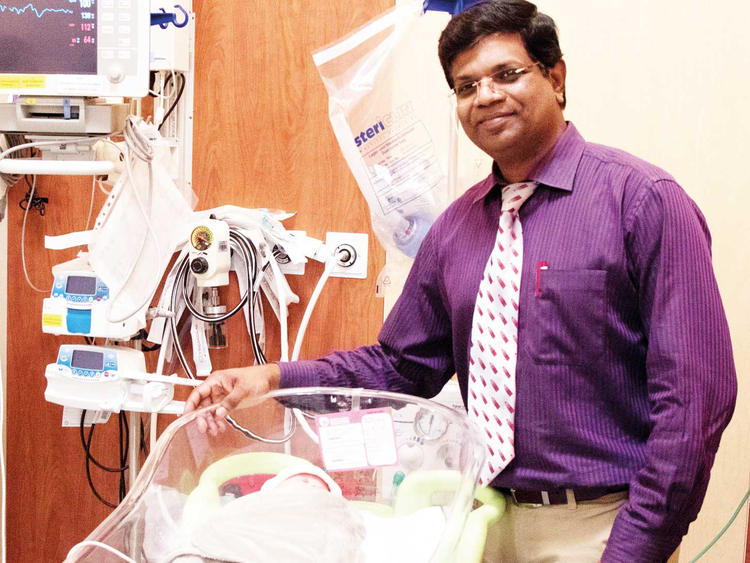Abu Dhabi: In a rare case, an Emirati baby girl was recently born in the capital with an extremely uncommon and potentially fatal ovarian complication, known to be only the third such case reported worldwide.
A surgery the day after she was born proved successful, however, and Al Anoud Esmail is now recovering well.
Al Anoud was delivered at Danat Al Emarat Hospital on December 18 weighing a healthy 3.29 kilograms.
But antenatal scans had already indicated that she had an abdominal swelling, and a complete assessment after she was born showed twisted ovaries that were bleeding due to large cysts present in both, said Dr Raja Cingapapu, paediatric surgeon at the hospital.
“Typically, a newborn ovary is about one-centimetre wide in size. But the large cysts in this case had caused each ovary to swell to about five centimetres, and the weight of the cysts had resulted in the ovaries becoming twisted,” Dr Cingapapu told Gulf News.
Twisted ovaries
While twisted ovaries can occur in many babies, it is very rare to have both ovaries twisted, the doctor said.
Without treatment, Al Anoud was at risk of permanent infertility. And if her ovaries ruptured, it could also prove fatal.
Dr Cingapapu added that in the first such case reported worldwide in 1982, the abnormality had been detected late and the baby born in the United States did not survive.
Al Anoud was therefore prepped for surgery with blood transfusions, and a three-hour laparoscopic procedure on December 20 allowed a surgical team to remove the cysts from both her ovaries.
The ovaries were also untwisted, the bleeding stopped, and all accumulated blood drained.
The baby was then kept under observation in the neonatal intensive care unit for five days before she was discharged.
Unknown cause
According to Dr Cingapapu, the real reasons behind such abnormalities are not fully known.
“It could have been caused by maternal hormones, which are transmitted through the placenta to the unborn baby," he said.
"Some foetuses may be hypersensitive to the circulating hormones, leading to swelling and twisting,” he added.
The mother was also diabetic, making the pregnancy slightly complicated.
Esmail, Al Anoud’s father, confirmed that she is now doing well.
“I was worried when told about my daughter’s condition, but did not hesitate to proceed with the treatment plan proposed by her doctors. And I am grateful that it saved her life,” he said.













